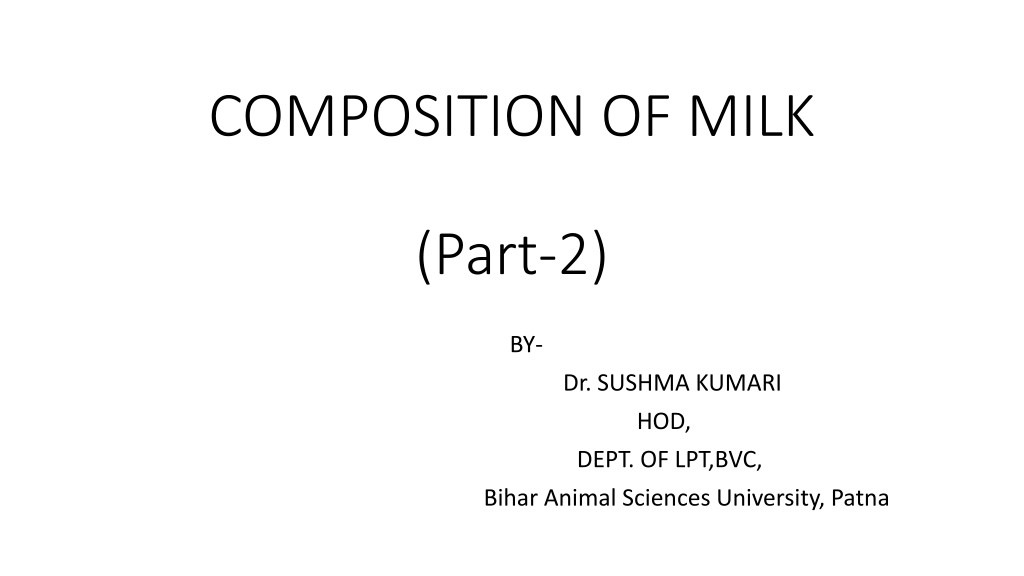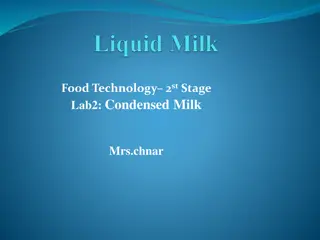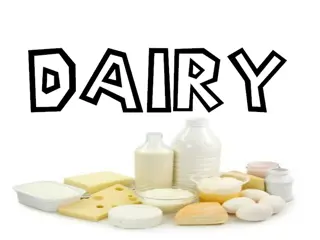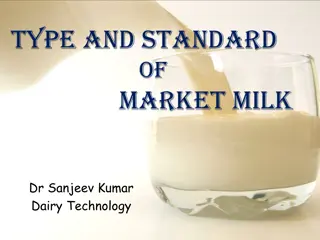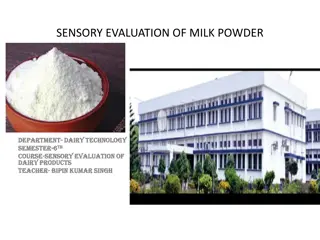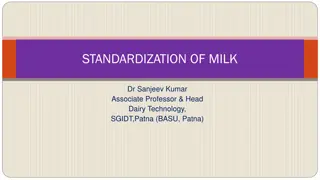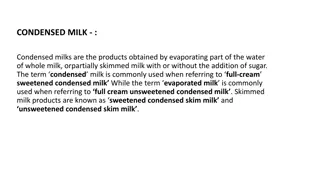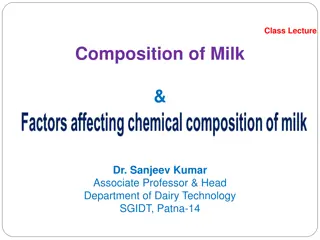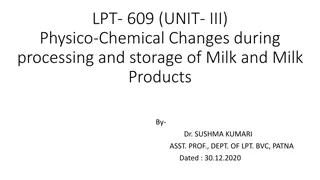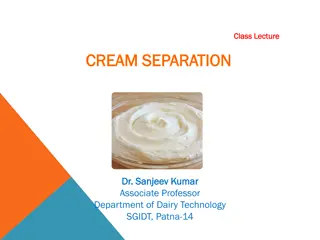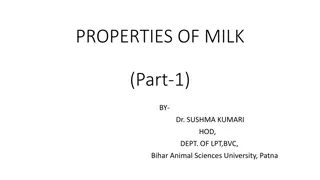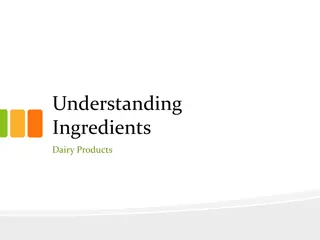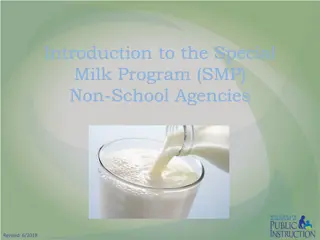Understanding the Composition and Nutritive Value of Milk
Milk composition varies due to factors like species, breed, feeding, and more. It contains essential nutrients like protein, minerals, and vitamins. Milk is a rich source of calcium, phosphorus, and vitamins, essential for overall health. The energy value of milk constituents varies, with milk fat having the highest calorie content. Overall, milk is an ideal food with high nutritive value and plays a vital role in providing essential nutrients to the body.
Download Presentation

Please find below an Image/Link to download the presentation.
The content on the website is provided AS IS for your information and personal use only. It may not be sold, licensed, or shared on other websites without obtaining consent from the author. Download presentation by click this link. If you encounter any issues during the download, it is possible that the publisher has removed the file from their server.
E N D
Presentation Transcript
COMPOSITION OF MILK (Part-2) BY- Dr. SUSHMA KUMARI HOD, DEPT. OF LPT,BVC, Bihar Animal Sciences University, Patna
Factors affecting composition of milk All milk contain same constituents but in varying amounts. Milk fat shows greatest daily variation followed by protein, ash and sugar. Factors- 1.Species 2.Breed 3. Individuality 4.Interval of milking 5. Frequency of milking 6. Disease and abnormal condition
7.Portion of milking- (Fore milk and Stripping) 8. Stage of lactation 9. Yield 10. Feeding 11. Season 12. Age 13. Condition of cow at calving 14. Administration of drugs and hormones
Nutritive value of milk Milk is an ideal food. It has high nutritive value.It supplies body building protein, bone forming minerals and vitamins, energy giving lactose and milk fat. Milk protein contain all essential amino acids in good amount. The protein of milk consist mainly of casein, alpha- lactalbumin, beta- lactoglobulin etc. Casein exist in milk as ca-caseinate- phosphate complex. Alpha- lactalbumin and beta-lactoglobulin protein. In Colostrum it is 10-12 % higher than normal milk. are known as whey or serum
Milk is an ideal source of Ca, P, Vit A, D etc but low in Fe, Cu and iodine. Milk fat provide energy and also improves flavour to milk and milk product. Milk fat contain significant amount of essential fatty acids linoleic and arachidonic acid. Milk fat imparts soft body, smooth texture and rich taste to dairy products. Lactose sugar gives sweetness in milk and provides energy.
Energy value of milk constituents:- Milk fat =9.3 C/g Milk protein= 4.1 C/g Milk sugar = 4.1 C/g Calorie value of Whole Milk- Cow milk= 75 C/100g Buffalo milk=100 C/100g
